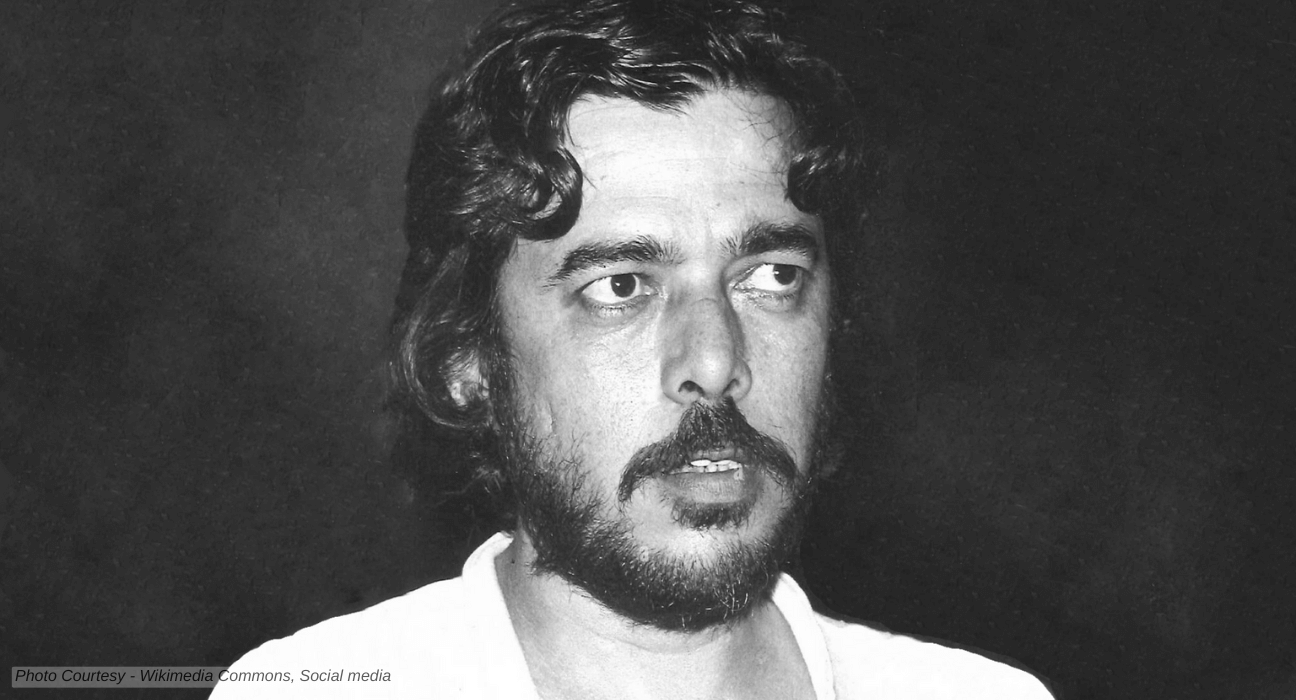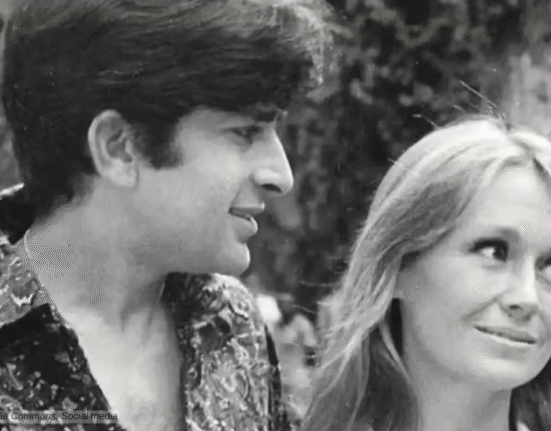Iconic filmmaker, screenwriter, educator, and activist Saeed Akhtar Mirza is a legendary figure in parallel cinema who is known for his path-breaking films like Mohan Joshi Hazir Ho! (1984), Albert Pinto Ko Gussa Kyoon Aata Hai (1980), Salim Langde Pe Mat Ro (1989), and Naseem (1995), as well as serials like Nukkad (1986) and Intezaar (1988).
Early Life and Career
Saeed Akhtar Mirza was born on June 30, 1943, in Bombay. His father Akhtar Mirza, a notable screenwriter of the 1960s who wrote iconic films like “Naya Daur and Waqt.” His brother, Aziz Mirza, is also a filmmaker who launched Shah Rukh Khan’s career. Mirza completed his education at St. Xavier’s College, Mumbai, and started working in advertising. He then joined the Film and Television Institute of India (FTII) in Pune, graduating in 1976. At FTII, he was mentored by Ritwik Ghatak and was influenced by his cinematic approach. Saeed added “Akhtar” to his name on Ghatak’s advice for pride.

He started his career by making documentaries like Murde (1976) and An Actor Prepares (1976) with Om Puri, Slum Eviction (1976) on a government project of clearing out slums to make room for government buildings, and Urban Housing (1977).
In 1976, Saeed Akhtar Mirza was part of the direction team consisting of him, K. Hariharan, Mani Kaul and Kamal Swaroop, together, made the film “Ghasiram Kotwal,” an adaptation of Vijay Tendulkar’s play. The film starring Mohan Agashe and Om Puri was a commercial failure. The film get some norice when it went to for the Berlin Film Festival. Slowly, it gained reputation as a “remarkable avant-garde experiment in collective film-making.”
Saeed Akhtar Mirza – The Filmmaker
Mirza’s stand-alone directorial debut, “Arvind Desai Ki Ajeeb Dastaan (1978),” set the tone for his career. The film delved into the frustrations of an idealistic youth trapped in a materialistic society, earning the Filmfare Critics Award for Best Movie.
His next was “Albert Pinto Ko Gussa Kyoon Aata Hai (1980),” a narrative exploring the identity crisis of an angry young man. The film, starring Naseeruddin Shah, Shabana Azmi, Smita Patil, and Om Puri, is a masterpiece in dealing with the layered narrative and exposing the capitalist nexus. The film earned him another Filmfare Critics Award for Best Movie.



His subsequent works, “Mohan Joshi Hazir Ho! (1984)” with Naseeruddin Shah, Deepti Naval, and Bhisham Sahni and “Salim Langde Pe Mat Ro (1989)” with Pavan Malhotra, Makrand Deshpande, and Ashutosh Gowariker, continued to reflect the struggles of the urban middle class, addressing themes of identity, communalism, and the search for a place in a rapidly changing India.
A Voice For Unity
In 1995, Mirza directed “Naseem,” starring Mayuri Kango as 15-year-old Naseem and Kaifi Azmi as her ailing grandfather. The film is set in mid-1992 and tells the story of the growing communal divide in the city. The film won the National Award for Best Direction and Best Screenplay. Naseem is perhaps his most personal work, reflecting on the secular ideals of India juxtaposed against the backdrop of communal unrest.



Mirza also directed the iconic serials Nukkad (1986) and Intezaar (1988). These shows captured the everyday struggles of the lower middle class, resonating deeply with viewers across the country.
In 2009, he directed “Ek Tho Chance,” a drama film that starred Amrita Arora, Ali Fazal, and Uttam Halder. This film captures the essence of Mumbai, its people, and the myriad chances life offers through the lens of multiple characters.
His Craft
While making films, Saeed emphasizes observation and reflection. He uses silence and cold cinematography to enhance dialogue-driven narratives. His films feature willful camera movements and composed images, choreographing characters to reflect turmoil. Themes include social and economic inequity, class conflict, ethnic identity, and communalism. He terms his work “the cinema of integrity,” aiming to provoke dialogue. His later shift to writing and documentaries reflects a deliberate pace, allowing deeper exploration.
Saeed is a staunch supporter of equality, communal harmony and workers’ rights. He draws inspiration from Marxist thought, emphasizing class struggle and economic disparity. His secular outlook stems from his upbringing in Mumbai’s diverse culture. He supports progressive causes, as seen in his trustee role with ANHAD (Act Now for Harmony and Democracy). His nickname “Leftist Sufi” captures his fusion of political activism with spiritual humanism. He critiques capitalism and communal and social divides, viewing them as threats to Indian identity.
His Work
Saeed Akhtar Mirza’s beliefs shape his narratives with a focus on marginalized communities. Arvind Desai Ki Ajeeb Dastaan (1978) portrays a rich youth’s disillusionment with capitalism, reflecting his anti-elitist stance. Albert Pinto Ko Gussa Kyoon Aata Hai (1980) explores a mechanic’s anger against exploitation, aligning with his worker rights advocacy. Mohan Joshi Hazir Ho! (1984) critiques the legal system’s failure to protect the poor, showcasing his justice focus.
Salim Langde Pe Mat Ro (1989) addresses Muslim identity and crime, highlighting his secular concerns amid Bombay’s tensions. Naseem (1995) examines communal harmony before the 1992 riots, reinforcing his anti-communal message. His use of silence and composed imagery amplifies these themes, inviting reflection.
Personal Life
Mirza is married to Jennifer, and together they have two sons, Safdar and Zahir, who live in New York and Dubai, respectively. His brother Aziz Mirza is a renowned filmmaker who directed films like “Raju Ban Gaya Gentelman and Yes Boss. In 2020, he was honoured with a Lifetime Achievement Award at the International Cultural Artefact Film Festival. He wrote Ammi: Letter to a Democratic Mother (2008), a novel about his mother. In 2012 he published the novel “The Monk, the Moor & Moses Ben Jalloun.”
Saeed Akhtar Mirza believes in making meaningful cinema and using it to benefit society. His films and television serials have not only entertained but also provoked thought and discussion on critical social issues.
Saeed Akhtar Mirza on IMDB













Leave feedback about this